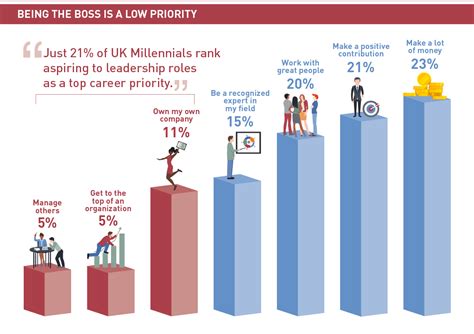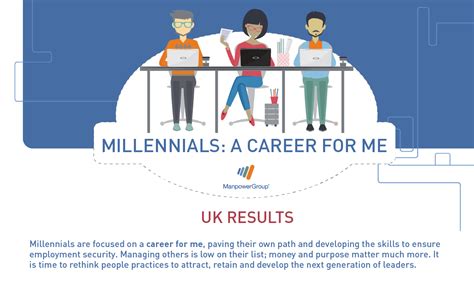
Millennials climbing the corporate ladder face an increasingly “deadly” career landscape, according to one millennial who warns of heightened competition, increased responsibilities, and potential burnout at higher levels. The risks, they say, escalate the further one advances.
The sentiment, echoed by many in the millennial generation, stems from observations of older colleagues and personal experiences navigating demanding professional environments. It suggests that the pursuit of career advancement may come at a significant cost, impacting work-life balance and overall well-being.
“The higher you climb, the more deadly it becomes,” declared the millennial in a now-viral social media post, highlighting the pressures faced by those seeking to advance in their careers. This perspective resonates with a growing awareness among millennials about the potential downsides of prioritizing career progression above all else. The original poster (OP) has chosen to remain anonymous.
The core of the concern revolves around several key factors:
- Increased Competition: As individuals move into more senior roles, the pool of available positions shrinks, leading to fierce competition. This can create a cutthroat environment where employees feel pressured to constantly outperform their peers, leading to stress and anxiety.
- Greater Responsibilities: Higher-level positions inevitably come with greater responsibilities and expectations. This can translate to longer hours, increased workload, and constant pressure to deliver results. “It is very competitive and political, and you become a manager with no training,” the OP stated.
- Burnout Risk: The combination of intense competition and increased responsibilities can significantly increase the risk of burnout. Burnout is characterized by emotional, physical, and mental exhaustion caused by prolonged or excessive stress.
- Sacrificed Work-Life Balance: In the pursuit of career advancement, many millennials find themselves sacrificing their work-life balance. This can lead to strained relationships, neglected hobbies, and a general sense of dissatisfaction with life.
- Lack of Support: Some millennials find that as they climb the ladder, the support systems they once relied on begin to diminish. Mentorship opportunities may become less frequent, and senior leaders may be less accessible.
The observation made by the anonymous poster in the social media post aligns with broader discussions about work culture and employee well-being. Millennials, in particular, have been vocal about their desire for more flexibility, purpose, and work-life balance in their careers. This perspective challenges the traditional notion of career success as solely defined by climbing the corporate ladder.
The warning serves as a reminder to consider the potential trade-offs involved in pursuing career advancement and to prioritize well-being alongside professional goals. It also prompts employers to address the challenges faced by employees at all levels, creating a more supportive and sustainable work environment.
The concern isn’t only anecdotal. Research has shown that stress and burnout are prevalent across various industries and organizational levels. A recent study revealed that a significant percentage of employees experience symptoms of burnout, including exhaustion, cynicism, and reduced professional efficacy.
Furthermore, the increasing demands of the modern workplace, coupled with technological advancements that blur the lines between work and personal life, contribute to the pressures faced by ambitious professionals. The constant connectivity afforded by smartphones and email makes it difficult to disconnect from work, leading to chronic stress and exhaustion.
Many millennials are actively seeking alternative career paths or approaches to work that prioritize their well-being. This includes exploring entrepreneurship, freelancing, or seeking roles in companies with a strong emphasis on work-life balance and employee support. Some are also advocating for changes in workplace culture, such as flexible work arrangements, mental health resources, and a greater emphasis on employee recognition and appreciation.
Deeper Dive: The Pressures of the Corporate Climb
The “deadly” aspect of career advancement, as highlighted by the anonymous poster, touches upon several critical issues within contemporary corporate culture. These go beyond mere long hours and delve into the psychological and emotional toll that upward mobility can exact.
1. The Illusion of Control:
As employees ascend the hierarchy, they often gain more formal authority. However, this can be accompanied by a diminished sense of actual control over their work lives. Senior leaders often face pressure from multiple stakeholders – shareholders, boards of directors, regulatory bodies, and increasingly, public opinion. This pressure can translate into rigid performance metrics, demanding timelines, and a limited ability to make independent decisions. The perceived control that comes with a higher title may mask a reality of increased constraints and accountability.
2. The Isolation Factor:
While collaboration may be emphasized, the higher one climbs, the more isolated they can become. Senior executives may find themselves distanced from day-to-day operations and the concerns of junior staff. Building genuine relationships with colleagues can become more challenging due to power dynamics and perceptions of self-interest. This isolation can contribute to feelings of loneliness and detachment, eroding job satisfaction and overall well-being.
3. The Ethical Dilemmas:
Higher-level positions often involve navigating complex ethical dilemmas. Decisions made at the top can have far-reaching consequences for employees, customers, and the broader community. Senior leaders may face pressure to prioritize profit over people, cut corners to meet financial targets, or engage in questionable business practices. Navigating these ethical challenges can be emotionally draining and morally compromising, leading to significant stress and disillusionment.
4. The Performance Trap:
The pressure to maintain a high level of performance intensifies as one advances in their career. Mistakes become more visible and carry greater consequences. Senior leaders are constantly under scrutiny from above and below, facing relentless pressure to deliver results. This can lead to a fear of failure and a reluctance to take risks, stifling innovation and creativity. The pursuit of perfection can become a self-defeating cycle, contributing to anxiety and burnout.
5. The Identity Crisis:
For many, their career becomes intertwined with their sense of identity. As they climb the ladder, they may come to define themselves by their job title and professional achievements. However, this can create a fragile sense of self-worth that is dependent on external validation. When setbacks occur, such as a missed promotion or a negative performance review, it can trigger a deep identity crisis. This can lead to feelings of inadequacy, depression, and a loss of purpose.
Addressing the “Deadly” Climb:
While the challenges of career advancement are undeniable, there are steps that individuals and organizations can take to mitigate the risks and create a more sustainable path to success.
Individual Strategies:
- Prioritize Well-being: Make time for activities that promote physical, mental, and emotional well-being. This includes exercise, healthy eating, sufficient sleep, mindfulness practices, and spending time with loved ones.
- Set Boundaries: Establish clear boundaries between work and personal life. Disconnect from work outside of designated hours and avoid checking email or taking calls during personal time.
- Seek Mentorship and Support: Build a strong network of mentors, colleagues, and friends who can provide guidance, support, and perspective.
- Develop Coping Mechanisms: Learn healthy coping mechanisms for dealing with stress and pressure. This may include journaling, meditation, yoga, or seeking professional counseling.
- Re-evaluate Priorities: Regularly re-evaluate your career goals and priorities. Ensure that your career aspirations align with your values and that you are not sacrificing your well-being for the sake of advancement.
- Learn to Delegate: One of the key skills as a manager is the ability to delegate tasks to subordinates. Doing this correctly gives managers the space to focus on what’s most important for their roles, and it also encourages growth from team members.
- Effective Time Management: Poor time management can lead to feeling overwhelmed and falling behind on deadlines. Tools for time management, such as calendars and to-do lists can help alleviate stress from work.
Organizational Strategies:
- Promote Work-Life Balance: Implement policies and practices that support work-life balance, such as flexible work arrangements, generous parental leave, and vacation time.
- Provide Mental Health Resources: Offer access to mental health services, such as employee assistance programs (EAPs) and counseling services.
- Foster a Supportive Culture: Create a workplace culture that values employee well-being, encourages open communication, and provides opportunities for recognition and appreciation.
- Invest in Leadership Development: Provide training and development opportunities for leaders to enhance their skills in areas such as communication, delegation, and conflict resolution.
- Address Burnout: Implement strategies to address burnout, such as workload management, stress reduction programs, and opportunities for employee feedback.
- Regular Check-Ins: Encourage managers to have regularly scheduled check-ins with employees. These one-on-one meetings are a great opportunity for managers to ask how employees are feeling and if they are having any challenges in the workplace.
- Company Retreats: Consider taking periodic company retreats. These events are a chance for teams to come together outside the office to relax, recharge, and connect with one another.
The Generational Divide:
While the concerns about the “deadly” climb resonate with many millennials, it’s important to acknowledge the potential for generational differences in perspectives on career advancement. Older generations, who may have grown up in a more traditional work environment, may view career progression as a necessary and expected part of professional life. They may also be more willing to sacrifice work-life balance in pursuit of career goals.
Millennials, on the other hand, are often characterized by a greater emphasis on purpose, flexibility, and work-life balance. They may be less willing to sacrifice their well-being for the sake of career advancement and may be more likely to seek alternative career paths that align with their values.
Understanding these generational differences can help bridge the gap between different perspectives on career advancement and foster a more inclusive and supportive workplace culture.
The Broader Societal Context:
The concerns about the “deadly” climb also reflect broader societal trends, such as increasing economic inequality, rising cost of living, and growing competition for jobs. These factors contribute to the pressure faced by individuals to constantly strive for career advancement in order to maintain their standard of living and achieve financial security.
Addressing these societal challenges requires systemic changes, such as policies that promote economic equality, affordable housing, and access to education and healthcare. It also requires a shift in cultural values that prioritize well-being over material success.
Ultimately, creating a more sustainable and fulfilling career path requires a collective effort from individuals, organizations, and society as a whole. By prioritizing well-being, fostering a supportive workplace culture, and addressing systemic challenges, we can create a future where career advancement is not “deadly” but rather a path to personal and professional fulfillment.
The original poster’s concern highlights the need for a more holistic approach to career development, one that considers not only professional achievements but also the overall well-being of individuals. It challenges the traditional notion of success as solely defined by climbing the corporate ladder and encourages a more balanced and sustainable approach to work and life. By recognizing the potential downsides of relentless career pursuit, millennials can make more informed choices about their professional paths and prioritize their health and happiness along the way.
In conclusion, the warning serves as a potent reminder of the potential pitfalls associated with chasing career advancement at all costs. It underscores the importance of self-awareness, boundary-setting, and a commitment to personal well-being in the face of increasing workplace demands. By acknowledging these challenges and proactively addressing them, millennials can navigate their careers with greater intention and resilience, ultimately achieving a more fulfilling and sustainable path to success. The social media post serves as a catalyst for a crucial conversation about the true cost of career advancement and the importance of prioritizing well-being in the modern workplace. It is a wake-up call for both individuals and organizations to re-evaluate their approaches to career development and create a more supportive and sustainable work environment for all.
Frequently Asked Questions (FAQ):
1. What is the main concern raised in the news article about millennial careers?
The main concern is that climbing the corporate ladder can become increasingly “deadly” for millennials, due to heightened competition, increased responsibilities, potential burnout, sacrificed work-life balance, and lack of support at higher levels. This suggests that the pursuit of career advancement may come at a significant cost to well-being.
2. What factors contribute to the “deadly” nature of career advancement for millennials?
Several factors contribute, including: increased competition for fewer senior roles; greater responsibilities leading to longer hours and workload; a higher risk of burnout due to stress and exhaustion; sacrificed work-life balance resulting in strained relationships; and a potential lack of support from mentors and senior leaders.
3. How does the article suggest millennials are responding to these career challenges?
Many millennials are actively seeking alternative career paths or approaches to work that prioritize their well-being. This includes exploring entrepreneurship, freelancing, or seeking roles in companies with a strong emphasis on work-life balance and employee support. They are also advocating for changes in workplace culture, such as flexible work arrangements and mental health resources.
4. What can organizations do to address the challenges faced by millennials in their careers?
Organizations can promote work-life balance through flexible arrangements and generous leave policies, provide mental health resources like EAPs and counseling, foster a supportive culture that values well-being, invest in leadership development to improve management skills, and implement strategies to address burnout, such as workload management programs.
5. Does the article discuss generational differences in perspectives on career advancement?
Yes, the article acknowledges that older generations may view career progression as a necessary and expected part of professional life, potentially being more willing to sacrifice work-life balance. Millennials, on the other hand, tend to prioritize purpose, flexibility, and work-life balance, potentially being less willing to sacrifice their well-being for career advancement.









